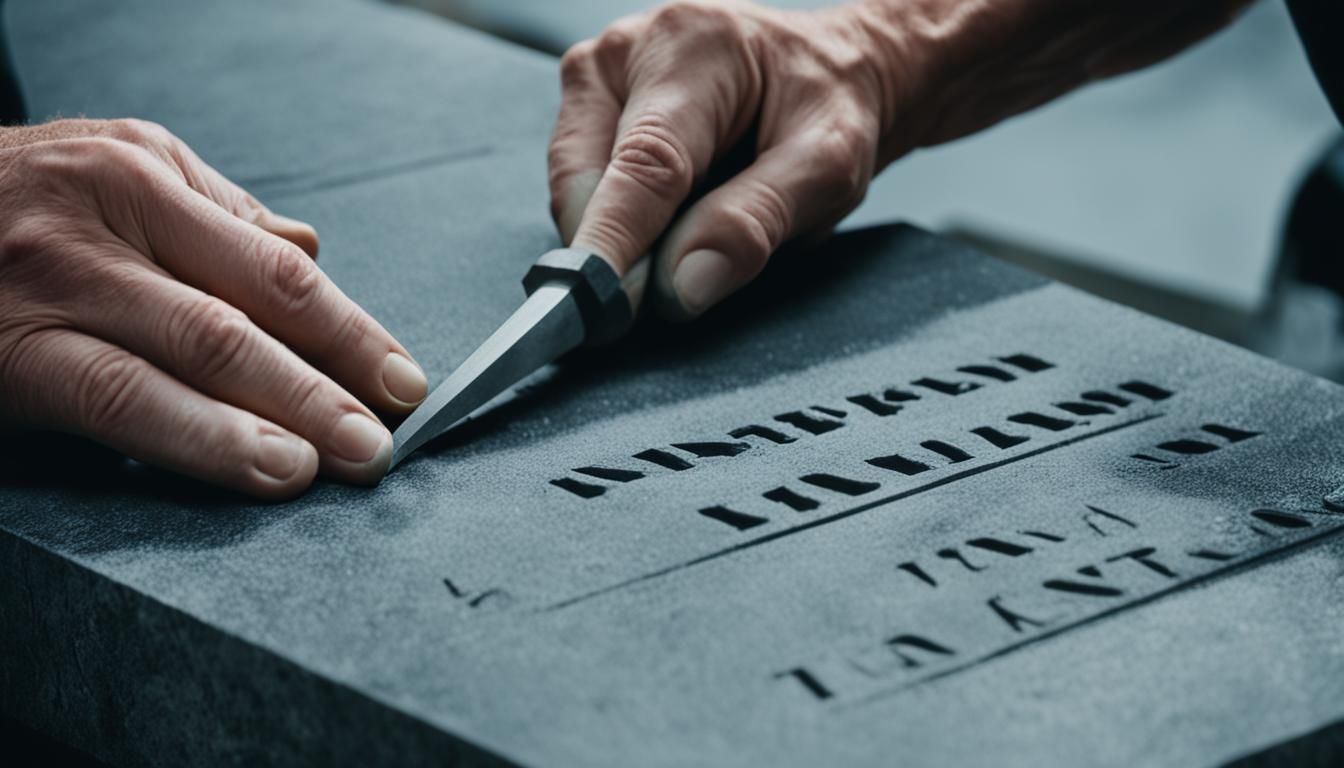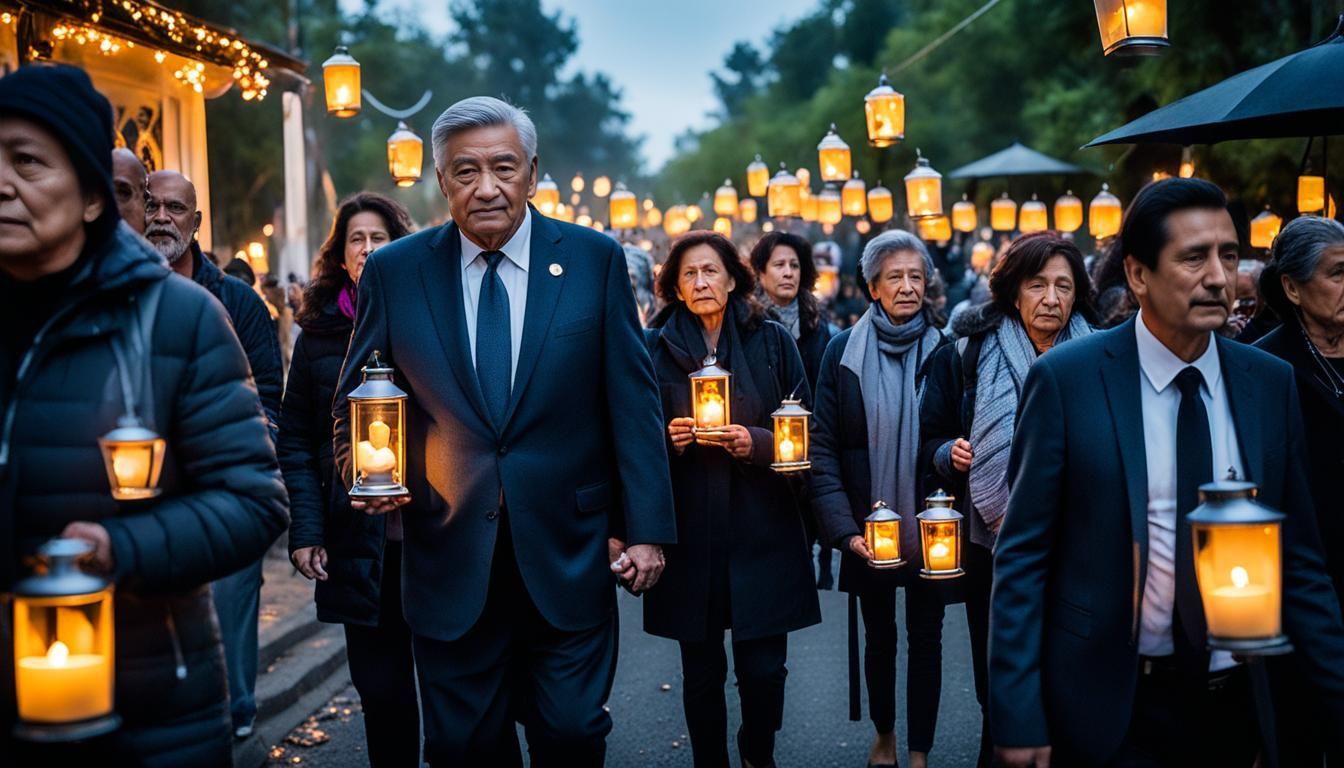Should My Child Attend the Funeral? A Guide.
Should My Child Attend the Funeral? A Guide.
Have you thought about if it's good to take your child to a funeral? This question comes up for many parents when they lose someone. They feel unsure because of mixed feelings and what people think. Most adults didn't go to funerals until they were older. So, they wonder if kids should be part of these serious events.
It can be good for kids to go to funerals. But they should choose if they want to go. 40% of adults who couldn't choose as kids felt upset about it later. It's also key to prepare and support them right. Talking to kids before and at the funeral helps. Assigning a 'buddy' or having them help in the ceremony can help them with their feelings. They will understand the funeral's meaning better.
Tailoring the experience to what your child is comfortable with is smart. Offering different ways to say goodbye is helpful. For example, doing activities the child liked with the person who died can help. 25% of kids tend to open up about their feelings more when they do such activities.
Key Takeaways
- Attending a funeral can be a positive experience for children if they are given the choice and support.
- 40% of adults who weren't given the choice to attend a funeral as a child expressed resentment later in life.
- Engaging children in activities they enjoyed with the deceased can help them express their emotions.
- Assigning a supportive 'buddy' during the funeral can make the experience more manageable for children.
- Respecting a child's decision to attend or not attend a funeral is crucial for their emotional well-being.
Understanding Children's Grief and Funerals
When it comes to children and loss , how we handle it matters a lot. Kids see death and funerals differently than adults do. Knowing this helps us support them better during grief. Their understanding grows over time. So, our support must match their learning level.
How Children Perceive Death and Funerals
How kids see death varies with their age, thinking skills, and experiences. Young ones may think death is temporary. But older kids begin to see it as permanent. This change affects how they view funeral rituals. A good guide on child bereavement encourages open and gentle talks. It helps kids work through their feelings and understand death better.
The Role of Funerals in the Grieving Process
Funerals help children, and adults, say goodbye. Being part of these ceremonies can heal. It gives a way to show sorrow and pay tribute. When we involve kids in meaningful ways, we help them deal with child funeral attendance . It shows the importance of saying farewell.
Common Concerns Parents Have
Parents often worry if their kids are too young for funerals. They fear the trauma from seeing upset adults. And they think about what people will say about kids at these events. It's important to know that age isn't what matters most. Instead, we should focus on making the situation supportive. Letting kids decide to attend or not is key. There are also other ways for them to say goodbye. Like lighting candles or making keepsakes to remember their loved ones.
Checking in with kids after the funeral is essential. We should talk about their feelings and keep supporting them. Doing things together, like physical activities or creative projects, helps them heal. Talking about separations and ensuring they feel safe is also key in helping kids deal with funerals and moving forward.
Should My Child Attend the Funeral?
Deciding if your child should go to a funeral is not just about their age. It's important to consider if they want to go, keeping their comfort in mind. By doing this, we avoid future upset and help them deal with the loss.
Kids show grief differently than adults, so explain what a funeral involves. Talk about the casket, rituals, and how people might react. This helps your child know what to expect and makes their decision easier.
Helping your child after the funeral is crucial. Let them know it's okay to feel sad and offer ongoing support. Young kids might want to do physical activities to express feelings, while older ones may like lighting candles or saying prayers.
Reading books on death suited to their age can help kids talk about their feelings. Keep talking to them about how they feel and remember the person who has died. Funerals can be a step towards healing for kids.
After the funeral, some kids might fear being apart from loved ones. Be there for them and reassure them. Encouraging them to draw or write can help them express and work through their feelings.
Getting help from a pastor, teacher, or doctor can be good for them. Being there for them at bedtime and other tough times is also key.
Letting kids have a say during this hard time matters a lot. Having them read something or pick a song can make them feel included.
If they decide not to go to the funeral, find another way to remember the person. This could be a home ritual, planting a tree, or visiting a special place. By supporting their choice, you create a caring space for them to mourn.
Preparing Your Child for the Funeral
When you prepare your child for a funeral, it's key to talk about death and the ceremony's importance carefully and clearly. This makes them more comfortable with what's happening. It also helps them know what will come next.
Explaining Death and Funerals to Children
Explaining death to kids is hard, but giving them honest, age-right details is crucial. You can help them grasp it by differentiating between the body and the person's essence. You might explain that while the body stops working, the memories and spirit of the person continue in our hearts.
What to Expect at a Funeral
Children often like knowing what will happen at a funeral, including who'll be there and the events order. Talking about the burial or cremation is also helpful. Explain that people may show emotions differently, and that's a normal part of mourning.
About 85% of kids value knowing what to expect at a funeral. This shows why it's important to prepare them well.
Emotional Preparation and Support
Getting ready for a funeral means acknowledging and affirming your child's feelings. About 70% of kids feel more supported when their parents share their feelings openly. They encourage talking about grief. Let them share their thoughts and memories, which about 60% of children find comforting.
Talking about how adults might act at ceremonies can ease confusion and worry. It's important to reassure kids that feeling emotions during these times is normal.
Assigning a Support Buddy
Having a trusted adult as a funeral support buddy for your child can be very helpful. This person can answer questions and offer comfort. Studies show about 80% of kids feel closure and comfort when they have proper support during funerals.
Thinking about their role in the funeral rituals can also give children a sense of being involved. Letting them help with art, stories, or tributes can aid in their healing. Roughly 75% of kids say this helps them in their grieving process.
Conclusion
Deciding if your child should go to a funeral is not just about their age. It also depends on how mature they are emotionally and how well they cope. Kids are different in how ready they feel emotionally, which affects how they deal with events like this. As parents, we need to look carefully at our child's own needs and past experiences with tough situations.
This way, we put our child's needs and emotional health first. It's what matters the most.
We also need to think about what the child wants more than what other family members wish. Having a deep talk with our child about what to expect at the funeral is key. This lets them choose wisely and get ready for what's coming. By doing this, we can tell if they really want to go and ensure they are not overwhelmed.
Thinking about letting kids go to funerals shows us it affects how they understand death and deal with emotions later on. The support shouldn't stop when the funeral ends. We must keep talking to our child about the person who passed away. This helps them with their feelings and reassures them.
Helping them express what they feel and remembering the loved one in child-friendly ways helps them heal. Child-friendly memorials are a good example. By respecting each child's way of grieving, we support them in developing healthy ways to handle future challenges.
FAQ
Should my child attend the funeral?
Whether a child goes to a funeral depends on how they feel, not how old they are. Giving them a choice shows respect for their feelings about loss.
How do children perceive death and funerals?
Kids see death and funerals differently than adults do. Their understanding grows as they get older. Going to funerals can help them realize what death means. It also lets them share their feelings.
What role do funerals play in a child's grieving process?
Funerals are important for kids who are grieving. They offer a chance to say goodbye. Kids learn about the rituals of mourning. They can share their sadness in a place where they feel supported.
What are common concerns parents have about children attending funerals?
Parents often worry if their child is too young or might get upset. They wonder how the child will react to others who are sad. The goal is to make the experience comforting and suitable for their age.
How should I explain death and funerals to my child?
Be clear and gentle when you talk about death and funerals. Tell them what funerals are for, what happens there, and how people show sadness. Use simple words and be honest with their questions.
What should my child expect at a funeral?
Tell your child about the casket, rituals, and how people might cry. Knowing this in advance can make them feel safer and less worried.
How can I emotionally prepare and support my child for the funeral?
Getting your child ready emotionally is key. Tell them it's normal to have different feelings. Comfort them during and after the funeral. Talk openly about how they're feeling later on.
What is a support buddy, and how can it help?
A support buddy is someone your child trusts who can go to the funeral with them. This person offers comfort and answers questions, helping the child feel protected.
Are there alternative ways for my child to say goodbye if they don't attend the funeral?
Yes. If your child decides not to go to the funeral, they can still say farewell. Making art, telling stories, or doing something special can help them feel connected and find peace.
How can I support my child after the funeral?
Keep the conversation going and offer comfort. Let them share their thoughts and celebrate the life of the loved one in meaningful ways together.
Source Links
- https://health.choc.org/should-my-child-attend-a-funeral/
- https://whatsyourgrief.com/should-children-attend-funerals/
- https://childmind.org/article/should-children-attend-funerals/
- https://www.katielear.com/child-therapy-blog/2021/12/19/should-a-child-attend-a-funeral
- https://bronxfuneralhome.com/blog/how-to-prepare-children-for-a-funeral/
- https://www.winstonswish.org/attending-the-funeral/
- https://aish.com/bringing_children_to_a_funeral/










